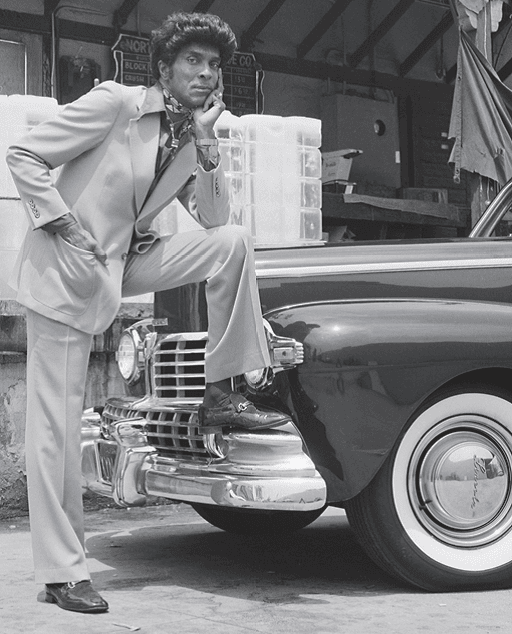

Again, we are a capitalist country, and yet women can not legally receive renumeration for providing the service for a very substantial demand. I had someone make a point to me recently that by making prostitution illegal we were actually depriving women of a lucrative means of making a living. At 18 years old, Iceberg Slim, then known as Young Blood, decides to become a pimp. The pharmaceutical companies can make trillions pumping out drugs to a population who doesn’t need them, but if a drug dealer does the same thing, he goes to jail. A banker can write a loan and front load all the interest, but a loan shark who does the same thing is breaking the law. The world has never been a fair place, and the rules are never applied evenly. I would have more sympathy for Iceberg Slim, trying to find the best way to hustle, if he hadn’t been such a brutal asshole. It was because the cunning bitch had dollar signs for eyeballs.” ”Why did Justice really always wear a blindfold? I knew now. This unfortunate incident was only the beginning of a life spent on the wrong side of the law. This happened during the ludicrous years of prohibition, he was supplying the liquor that his fellow students were demanding. What are the rules for capitalism? Supply and demand. Iceberg Slim, AKA Robert Beck, attended Tuskegee University until he was expelled for selling bootleg liquor. They watch and wait for his downfall.Ī pimp is the loneliest bastard on Earth. It thrills ‘em when the pimp makes mistakes. He knows they are still asleep.all whores have one thing in common just like the chumps humping for the white boss. (Reviewed from advance uncorrected proof index not seen.“A pimp is happy when his whores giggle. For more evidence, see Shetani’s Sister, a previously unpublished late novel that Beck instructed his wife to keep out of the clutches of Holloway House, which he believed cheated him out of the royalties he earned. The quotations from Slim’s books, interviews, and other writings demonstrate his immense writing talent and verbal flair.

Whether or not you buy Justin Gifford’s claims for his subject’s importance (“more than any other cultural figure of the past fifty years, Beck transformed American culture and black literature” his Pimp: The Story of My Life was “one of the most important pieces of American literature of the twentieth century”), his life makes a captivating story. There’s no question that in his late years he did a great deal of good, sounding a cautionary note for black youth who might be tempted to follow his path. Beck, bad as he was, claimed not to be as evil as other pimps because he didn’t hate his mother quite as much-in fact, by the evidence of this book, he didn’t hate her at all. The events of his life are put in historical context, including an interesting tour of the prisons (good and bad) where he was incarcerated and the various inner-city neighborhoods where he practiced his misogynistic profession.

The author of the Edgar-nominated Pimping Fictions: African American Crime Literature and the Untold Story of Black Pulp Publishing (2013) surpasses that excellent work with a thorough, well-documented, and intensely readable account of the life of Robert Beck (1918-1992), the reformed pimp whose writings as Iceberg Slim jump-started the outpouring of African American street literature beginning in the late 1960s, most from the Los Angeles paperback publisher Holloway House.


 0 kommentar(er)
0 kommentar(er)
